#vraska mtg
Explore tagged Tumblr posts
Text

The best t4t couple
#gonna use this moment to talk about a headcannon i have about em#vraska convinces Jace to rip a bong with her and Jace gets SOOO paranoid from it#shes like oh no what have i done#anyways#vraska#jace beleren#vraska mtg#jace mtg#mtg#magic the gathering#my art
552 notes
·
View notes
Text



ATTENTION!! IT IS NOW REAL JACE HOURS!!
#karpart#jace beleren#mtg#magic the gathering#jace mtg#vraska mtg#vraska#this will be all I repost today#deleting all my art of tunglr was a mistak but alas
178 notes
·
View notes
Text

is this anything?
#my art#jace beleren#mtg jace#jace mtg#mtg#vraska#vraska mtg#mtg vraska#so that story update huh#they really just. went at it in the middle of a multiplanar invasion#also this is how jace looks compared to anyone else in my mind#karpblorbo
486 notes
·
View notes
Text
The Multiversal Girlboss battle is over!
Let's take a moment to look at the top 8 of our fine competition.
#1 - Vraska, Queen of the Golgari
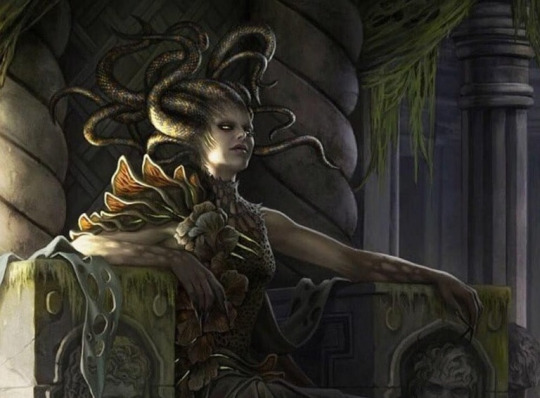
With a resume sporting feats of assassination, piracy, and a successful hostile overtaking of a swarm-like guild, it's unsurprising she'd find herself at the top.
#2 - Alesha, Khan of the Mardu
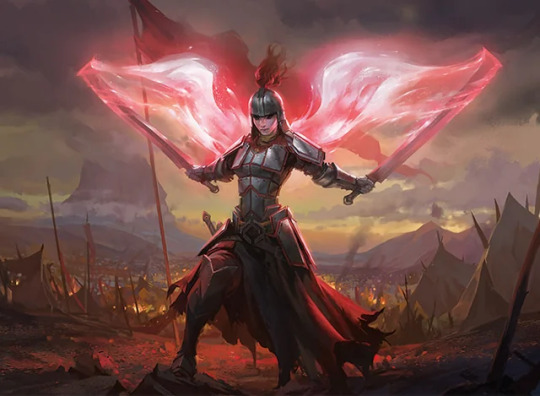
This Khan who smiles at death viciously fought her way to the top, on the back of not only her incredible list of feats but also the fact that she is, indeed, transgender.
Tied for #3 - Liliana Vess
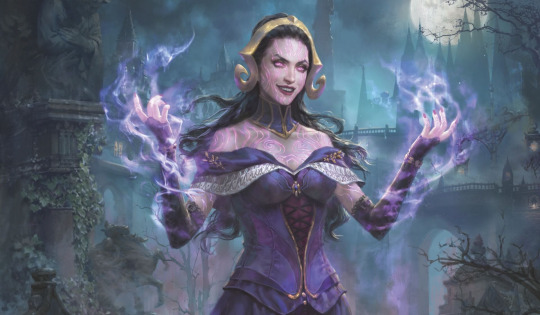
Though I doubt she'd settle for tying, she'll have to accept it. This intrepid necromancer has seen the most limelight of any of the girlbosses in this tourney. I would go so far as to say that in her early years she defined what it meant to be a Magic girlboss. Unfortunately for her, her recently compromised girlboss status due to a pesky thing called "character growth" doomed her to third place.
Tied for #3 - Teysa Karlov
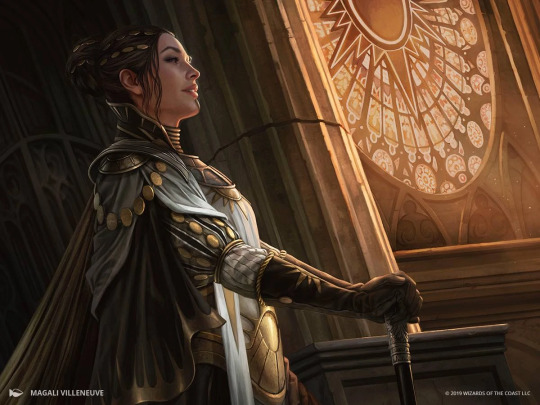
Opportunistic and cutthroat, Teysa's slow climb of the Orzhov ladder, leaving her effectively at the top of a corporate AND religious hierarchy, gave her a strong case for her ascension to the title of ultimate girlboss. Unfortunately, she lost out to someone who was actually able to take over a guild.
Tied for #5 - Queen Marchesa D'Amati

Long may reign the queen of Fiora, but let it be known that this is the highest title that she will achieve.
Tied for #5 - Nahiri, the Lithomancer
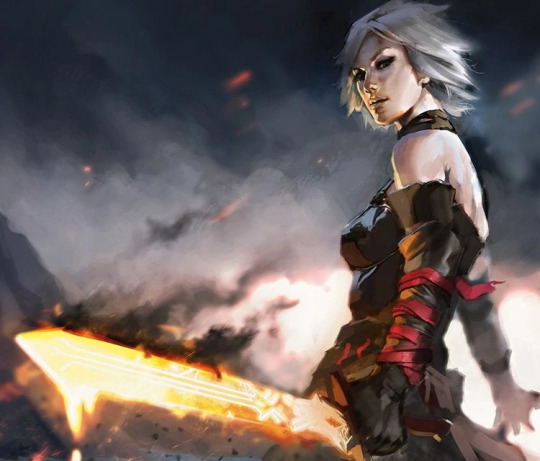
While Nahiri has surely taken some girlboss actions (read: committed some war crimes), her status as a repeated failgirl blocked her from ascending any further in this competition.
Tied for #5 - Ashnod the Uncaring
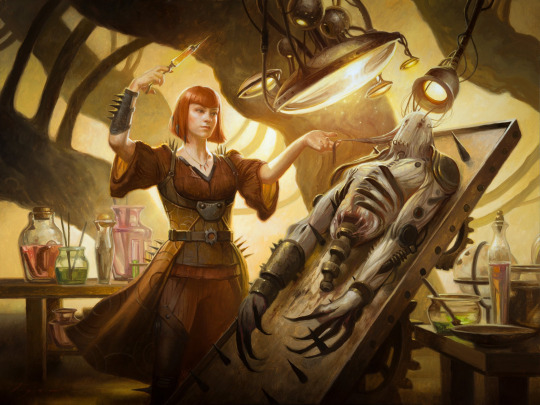
Speaking of war crimes, it's Ashnod! In spite both of her numerous felonies and her sporting that bob (one of the most girlboss hairstyles) she fell just short of greatness in this one.
Tied for #5 - Emrakul, The Promised End
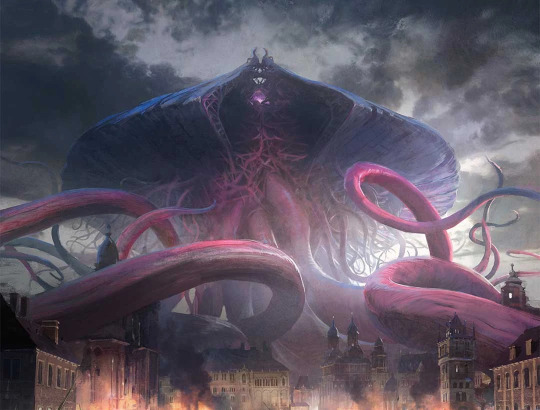
Rounding out our list we have Emrakul. We hope she's having fun up there in the moon, and we hope she knows we're ready for her to join us whenever she wants.
Link to final round masterpost.
#magic the girlbossing#magic the gathering#mtg#poll#poll bracket#girlboss#vraska#vraska mtg#alesha#alesha mtg#liliana vess#teysa karlov#marchesa d'amati#nahiri#nahiri mtg#ashnod#ashnod mtg#emrakul
225 notes
·
View notes
Note
who the fuck is being shipped with Vraska that requires only a 1-letter change...? and an I at that...?
Is Susan Taxpayer a Vriska kinnie? Or if not which troll does she kin?
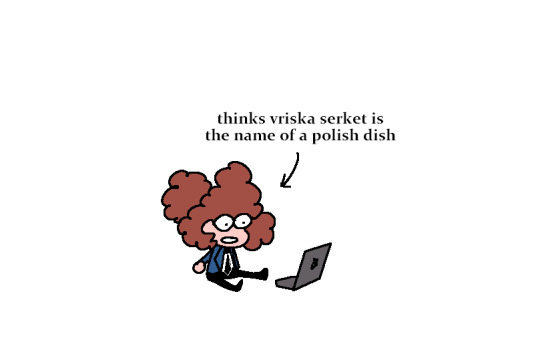
2K notes
·
View notes
Text

my localization of mtgjp's comic
here's a quick video that explains the joke
675 notes
·
View notes
Text
The Color of Hope: Ambition, Necromancy, and Black Mana
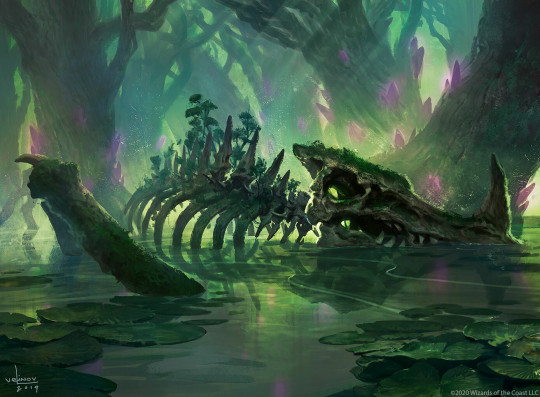
Black is one of the most misunderstood colors in Magic: the Gathering, not least because it appears on the surface to be so straightforward. Look at the most iconic black cards of Magic and you'll see deals with demons, necromancy, mass destruction and cruelty and suffering–the trappings of classic fantasy evil. Even the color's symbol itself is a skull, a universal signifier of death and danger.
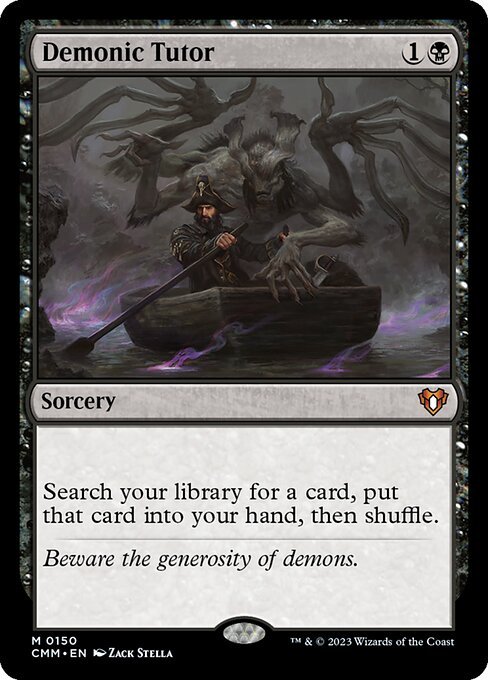
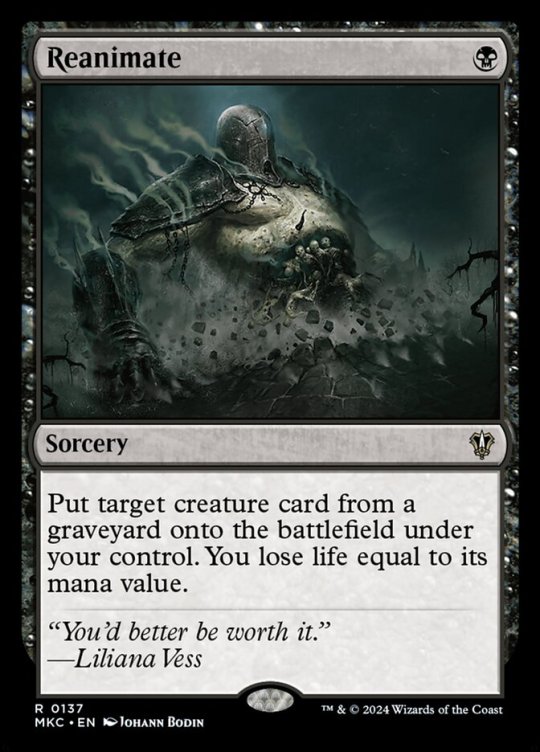
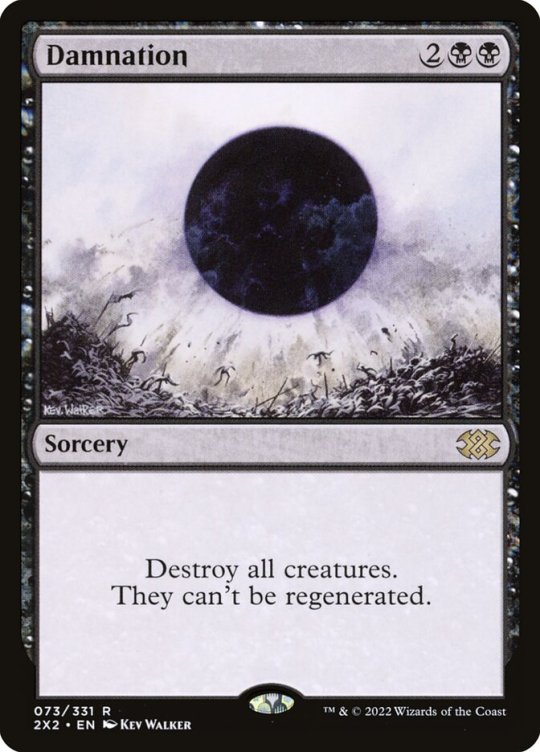
And in early Magic that seemed to be all it was. White was the color of Fantasy Good, black was the color of Fantasy Evil, and the rest of the colors were... fire magic? Elves? Whatever odd but intriguing skeleton affairs are implied by Time Walk?
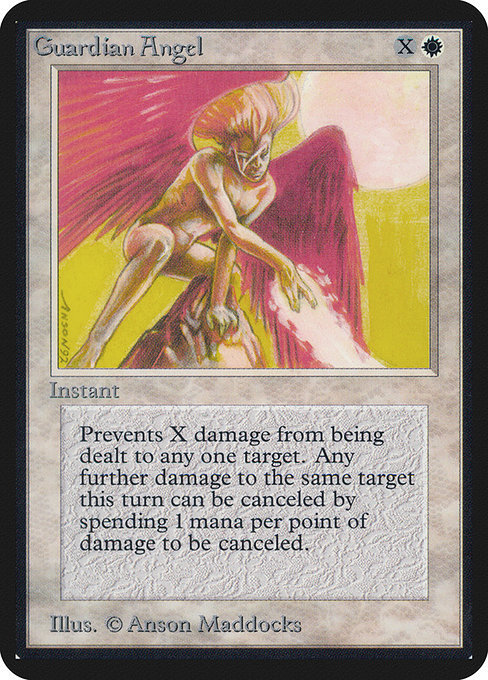
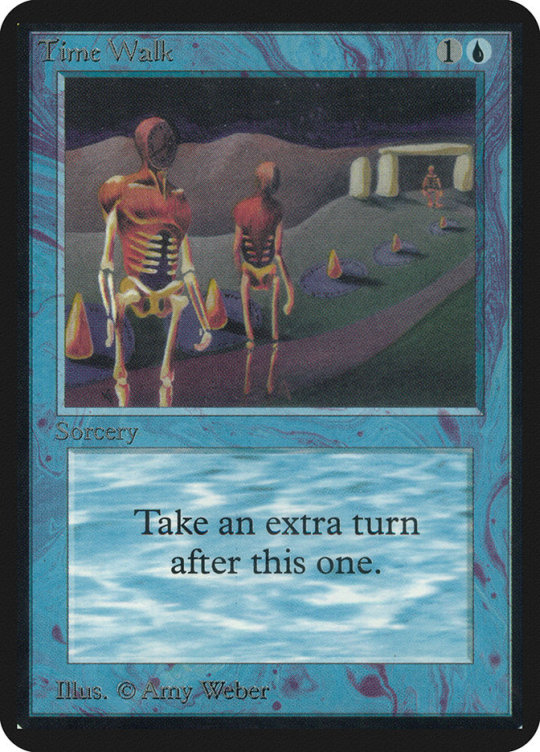
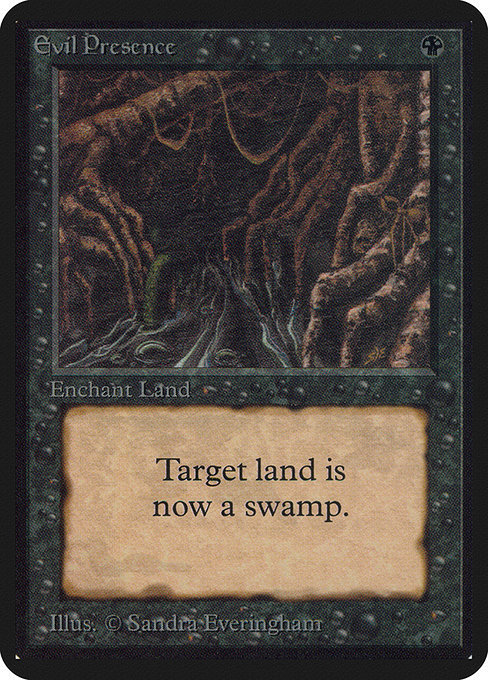
Gradually, though, Magic deepened as both a game and a storytelling medium. The color pie grew into itself as a system of complementary philosophies, archetypes whose associated aesthetics were only part of the full picture. Their arrangement around the wheel, below, is highly deliberate; neighboring colors are said to be allies with a high degree of philosophical and mechanical overlap, while colors on opposite sides of the pie are known as enemies, more likely to disagree on fundamental levels.
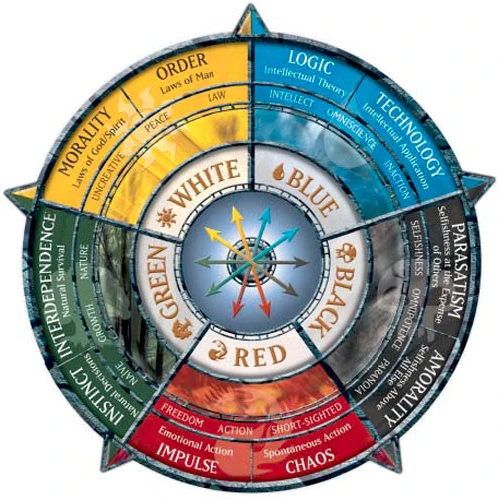
Black stopped merely representing capital E Evil and became the color of striving for power; unlike its peers, black felt that nothing, least of all morality, could prevent it from seizing what it wanted. Mark Rosewater's 2015 article about black emphasized the color's focus on the self:
"Black's philosophy is very simple: There's no one better suited to look after your own interests than you... Many costs require the sacrifice of others for your own advancement. Because it puts itself first, black is always willing to make this trade. The weak must fall for the strong to thrive." -Mark Rosewater
At its worst, black is an exploitative, amoral color that prioritizes itself at the expense of all others, allowing the "weak" to fall and scorning the very idea of compassion. Rosewater writes that black is "always willing" to trade others for itself. And these can certainly be parts of black's philosophy, when taken to its worst possible extremes, but they're far from the entire story.
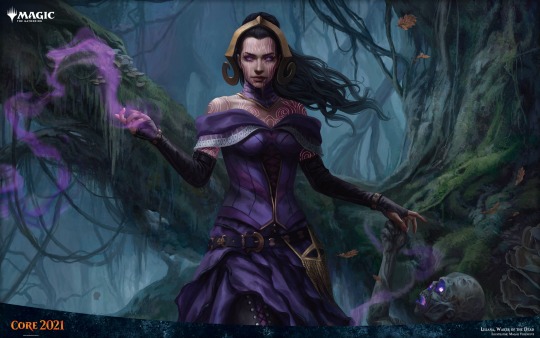
Over time, Magic's outlook on black gained nuance. Magic story introduced protagonists like the necromancer Liliana Vess, whose craving for immortality, seemingly exploitative nature, and demonic deals called back to the oldest portrayals of black–and yet she was not one-dimensionally evil. She underwent character development over the years, learning the value of reclaiming herself and standing beside others, and at no point did she become any less mono-black for it. Remember her; we will come back to Liliana and her story later.
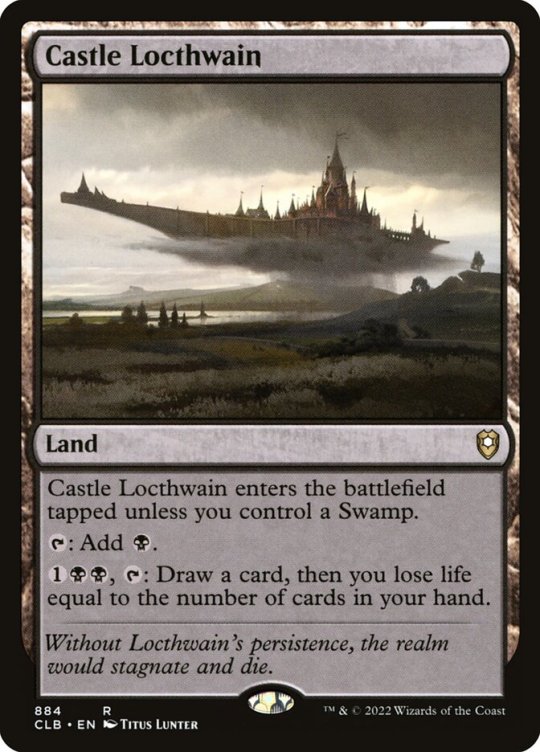
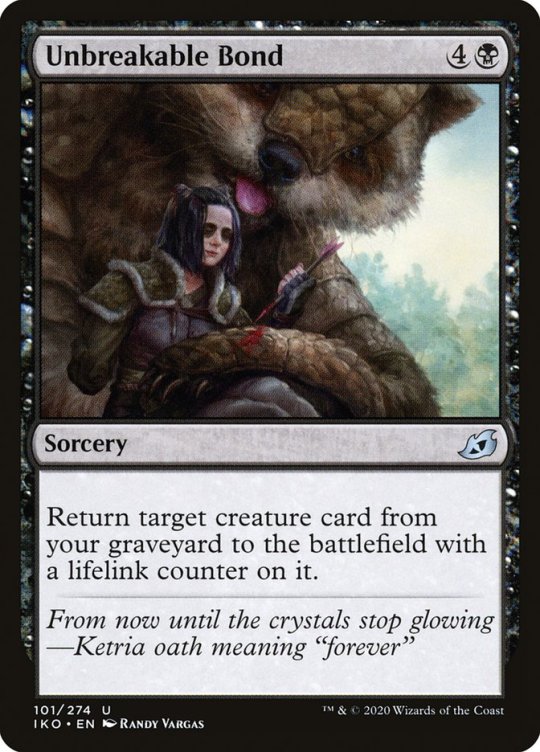
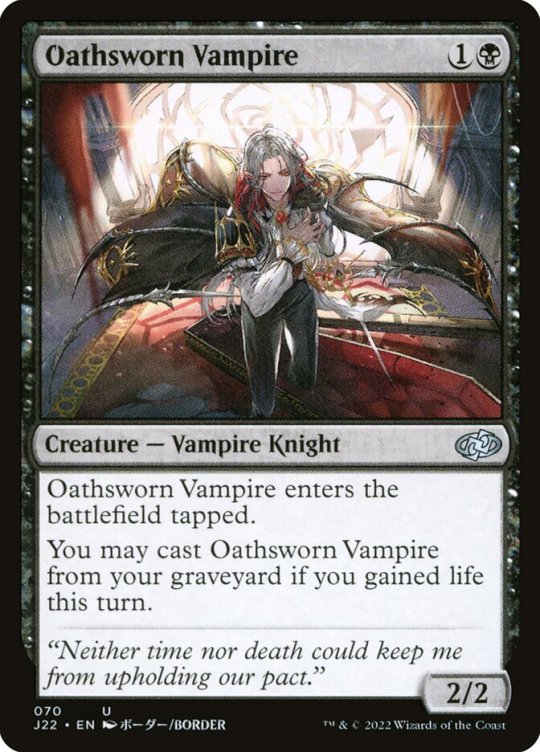
In addition to the usual death and decay, black cards began to feature a theme of relentless devotion. On the plane of Eldraine where each color represents a virtue, black's is persistence, explicitly as important as any other color. On the plane of Ikoria, the love between bonder and beast pulls Winota back from the brink of death. Wherever this Oathsworn Vampire printing is set, its flavor text is quintessentially black. It's the same self-driven attitude as before, but cast in a different light: black is nothing if not persistent when it's got its heart set on something (or someone) it cares about. Nothing, least of all the grave, will keep it down. After all, black will always come back for its own.
These newer cards uncovered the true face of black as a color capable of both great love and harm (sometimes even the latter for the sake of the former), and suggested a tantalizing new thread: perhaps putting yourself and yours first isn't all that bad, necessarily. Black is a deeply protective color; it says you don't just have to accept what you're handed, it's okay even to be furious about it (hello, ally color red), but let that galvanize you to do something about it.
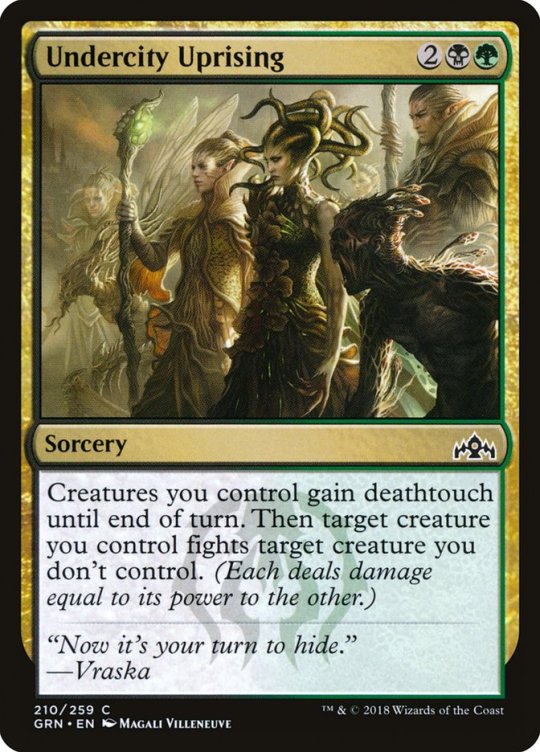
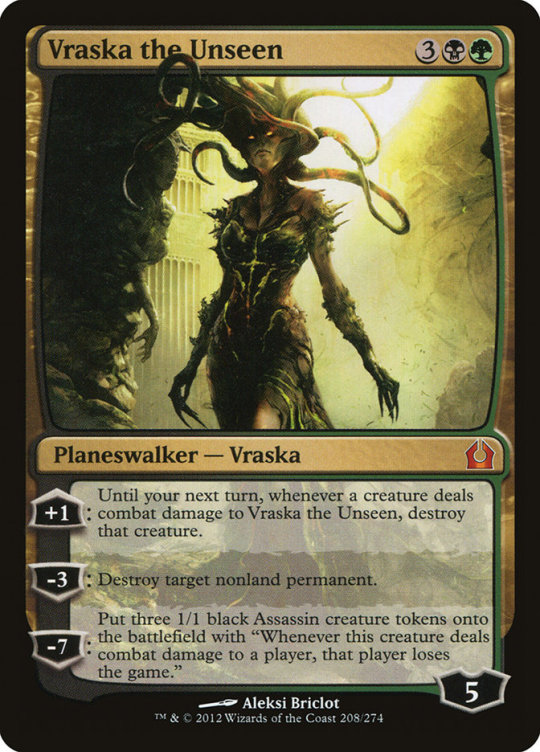
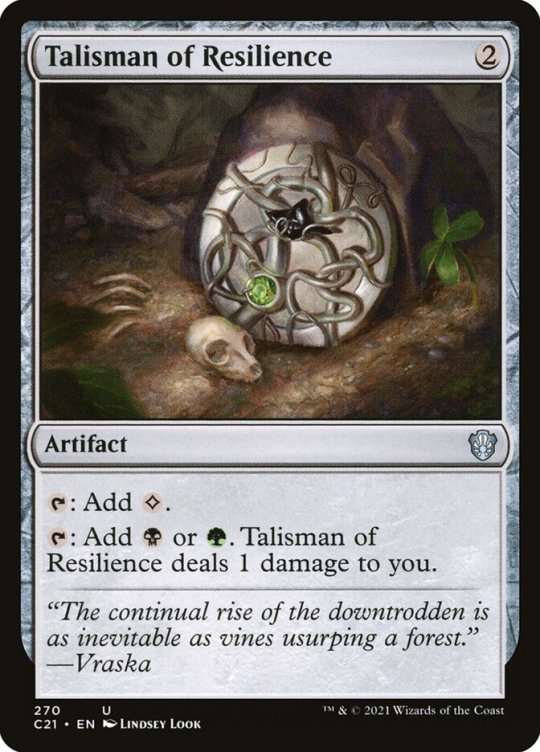
Vraska, a gorgon who faces extreme discrimination on her home plane of Ravnica, triumphs by reclaiming herself, gorgon powers and all–and even more radically, loving herself. She displays traits often considered the purview of white and green, such as a love of home and a drive to elevate the oppressed, but they are all filtered through the lens of her black alignment. Vraska staunchly refuses to deny herself or her people, the Golgari Swarm, of their value. Nor does she allow law or propriety to prevent her from championing them by any means necessary–even if that means cold-blooded murder, or aligning herself with a villain like the Planeswalker Nicol Bolas.
"[Vraska] thought of Mazirek, of the kraul, of the rest of the Ochran assassins and the malignant Jarad who reigned with casual ruin over the most downtrodden of the downtrodden. She remembered her years of isolation, and the heinous cruelty of the Azorius, and how no group deserved to suffer as much as those who would subjugate her own. Eliminating that hell was all she ever wanted." -The Talented Captain Vraska, Alison Luhrs
Like Vraska, black loves fierce and hard, willing to break any taboo for the sake of those it cares about. And it whispers, the entire way through, you are enough. You deserve better. No matter what others may say or do, you are enough.
"If I am to be met with disrespect, then I must first love myself with a fierceness no fool can take away." -Vraska in Pride of the Kraul, Alison Luhrs
Even black's "ruthlessness" isn't as fundamentally cruel as it appears, centering a passion for problem-solving (shared by its other ally blue) instead of a blunt disregard for others.
"People don’t understand the word ruthless. They think it means 'mean.' It’s not about being mean. It’s about seeing the bright, clear line that leads from A to B. The line that goes from motive to means. Beginning to end. It’s about seeing that bright, clear line and not caring about anything but the beautiful fact that you can see the solution. Not caring about anything else but the perfection of it." -K. A. Applegate
All of this comes together to make a black a color not of evil but of strength, integrity, and persistence. And that's all well and good, but I'm going to take it even further and put forward a new proposition: that black is the color of hope.
Of the nine mono-black Magic cards with "hope" in their names, all but Liliana portray black as an instrument of hope's destruction. This is, once again, black's flaw taken to its extreme–crushing others to achieve its own ends–but neglects black's own relationship with hope.

Black, more than any other color, requires hope to stay alive.
For black to persist, it must believe in a light at the end of the tunnel, a future in which its goals are realized. As long as it does, it will endure any hardship, walk through fire, and turn reality itself upside down on its way there. Primal, desperate ambition is the engine of hope that burns at the heart of black, keeping it always one step ahead of stagnation. Bitter and stubborn, black believes tomorrow will come because there is no other choice. After all, for black to relinquish hope is to let itself wither, regress, and die–an unacceptable outcome.
Thus, it is monumentally difficult to strip black of hope. That only makes it all the more crushing when it happens, when black contends with the idea that there is nothing it can do.
Black's deepest, darkest fear is helplessness.
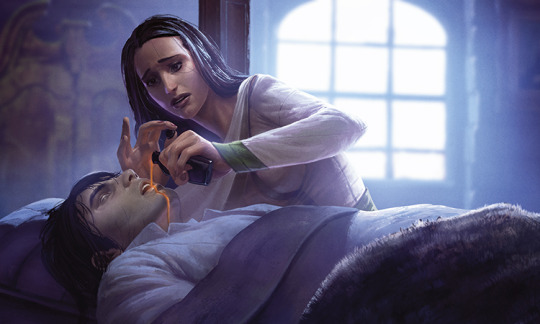
Like any mono-black character, Liliana Vess is driven at her core by a seething, desperate hope. When Liliana first unlocks her necromantic power, it is out of a sheer refusal to allow her ill brother Josu to die, even when the esis root that would cure him is destroyed by enemy witches in an undead-raising ritual. She defies her previous training as a healer, which taught her only to take the safe path, in favor of a higher-risk and higher-reward approach: stealing life from the witches themselves to restore power to the esis root she needs. It is her knowledge that her brother needs her, and her sheer stubborn will to succeed, which allows her to defeat the witches against steep odds.
"Six foes, and Liliana stood alone. But Josu's life depended on her, and the power blossoming within her was more than enough." -Liliana's Origin: The Fourth Pact, James Wyatt
Tragically, however, Liliana's attempted cure goes horrifically wrong, transforming Josu into an undead being plagued by eternal suffering. In his pain, Josu attacks Liliana. For a while Liliana holds out hope, finding the power to fight back while she determinedly searches for a spell to reverse the harm she's done. It is when she realizes this isn't possible that her strength falters.
"All this time, she had believed… that she could turn the power of death to the service of life and health. That a healer should use every tool at her disposal. But Josu was the result, a horrible fusion of life and death, and all her spells meant to manipulate the life force of the living could do nothing to harm the dead." -The Fourth Pact
Liliana learns that even her own dark magic, fueled by determination, cannot solve the problem she's created. She discovers the hard limit of her willpower, and the despair of this discovery is what causes her Planeswalker spark to ignite.
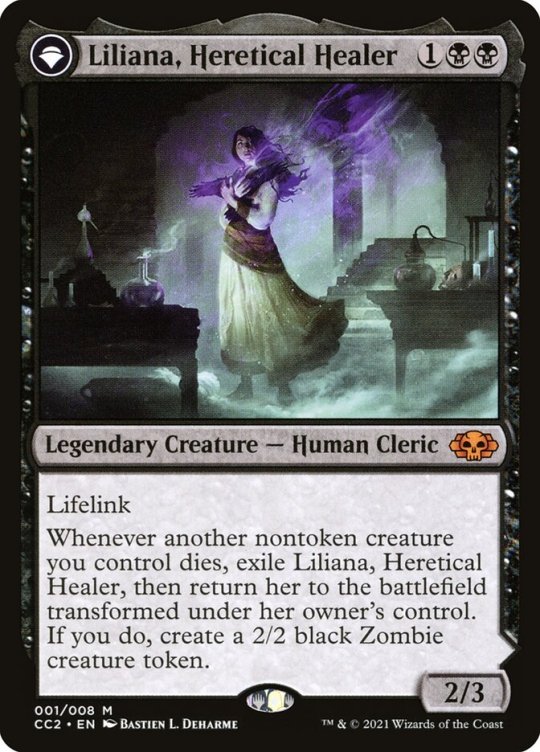
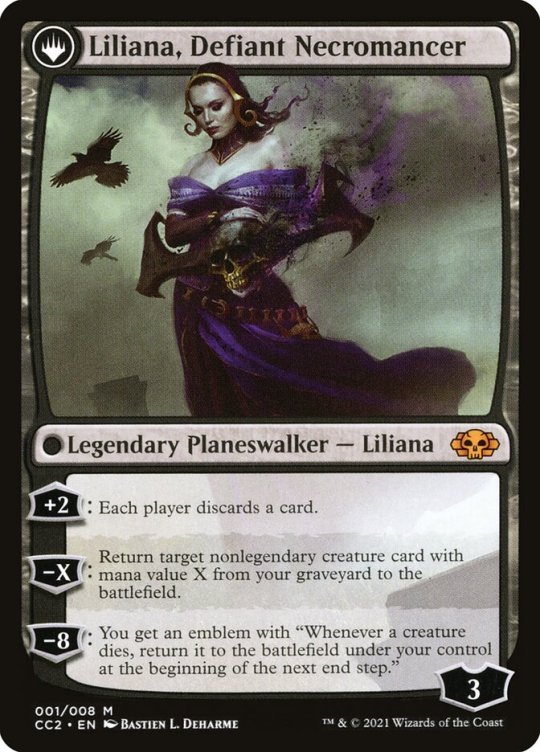
At this time Planeswalkers are as gods, immortal and near-omnipotent. Liliana spends decades enjoying this affirmation of her capability before the Mending strips her and all her peers of their power, reducing them once again to mortal mages.
"Then the Multiverse reshaped itself, robbing her—and every other Planeswalker���of the godlike power they once had wielded. Some called it the Mending, as if something broken had been repaired, but to Liliana, it seemed the opposite. It broke her beyond any hope of repair." -The Fourth Pact
Once again, it is Liliana's fear of helplessness and her refusal to accept it that drives her to push beyond the bounds of propriety–this time, to make a pact with Nicol Bolas and four demons to maintain her immortality. It is not enough for her merely to delay death; she requires the security of knowing she is fully beyond its reach, that she will never be helpless before it again as she was with Josu.
"Holding death at arm's length for whatever years are left to me? No, that's not enough. I want to be free of its shadow." -Liliana in The Fourth Pact
Black isn't like its enemy colors white and green, which are superficially associated far more often with hope. Unlike white, it doesn't believe that conviction, justice, and community will bring about rightness. Unlike green, it doesn't trust in the wisdom of the world or the natural order. Black believes that nothing will change unless you make it change; ultimately, black's self is the only one it can trust to bring about the world it needs. In addition, black lacks its enemies' idealism. Instead, it strives to be a pragmatic realist, making a final assessment of defeat all the more definite and crushing.
While white and green are more amenable to finding hope and holding it aloft as a banner, black claws hope desperately to its chest with shredded, bloody fingernails. Every ounce of hope black has, it tore by itself from the clutches of an uncaring world.
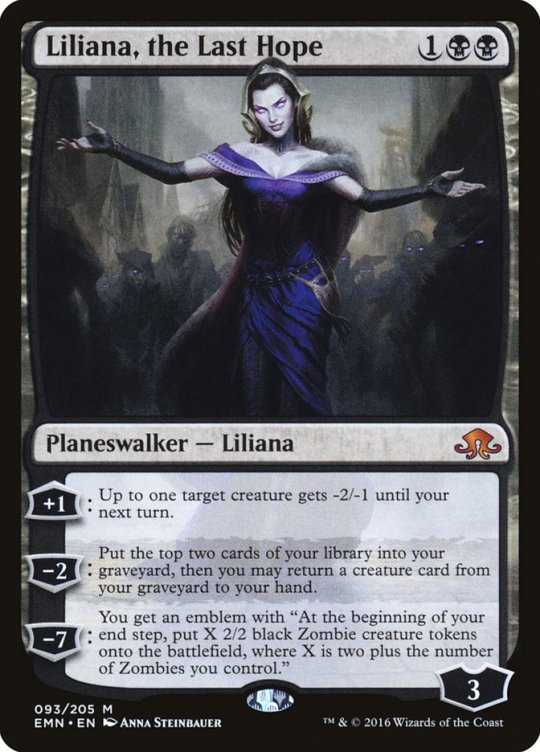
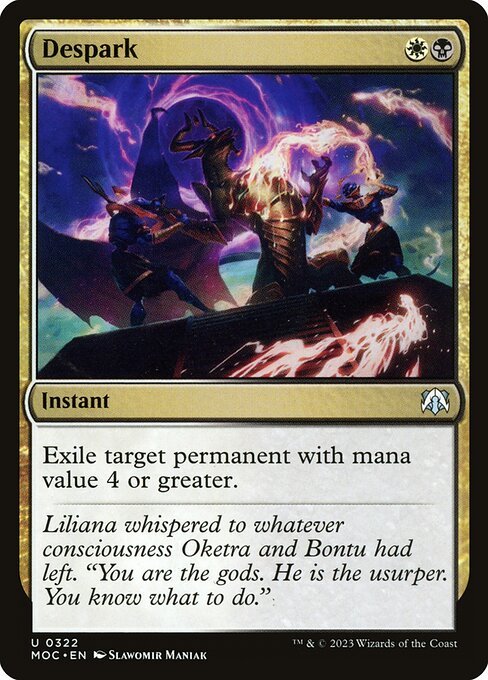
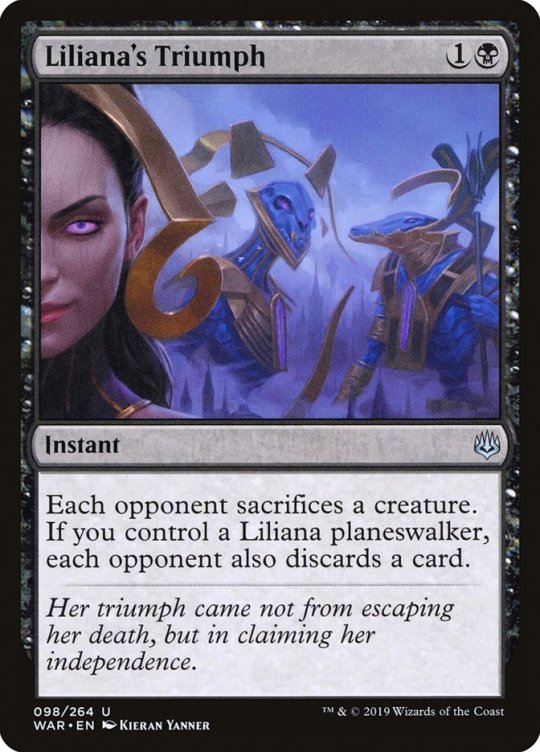
Ironically for such a self-driven color, black's fierce hope is the greatest asset it can provide to others–on its own terms, of course. It was Liliana who turned the tide of battle against the Eldrazi titan Emrakul, defiant in the face of cosmic despair. And when Nicol Bolas made his bid to return to godhood, using Liliana's necromancy to command his undead hordes, Liliana finally turned against him. In reclaiming her power, so too did she use it to free her fellow Planeswalkers from Bolas' assault. Her fear of helplessness no longer shackled her to him; agency and autonomy were hers at last.
The triumph of black, its moment of ultimate victory, is the hard-won fulfillment of its hope.
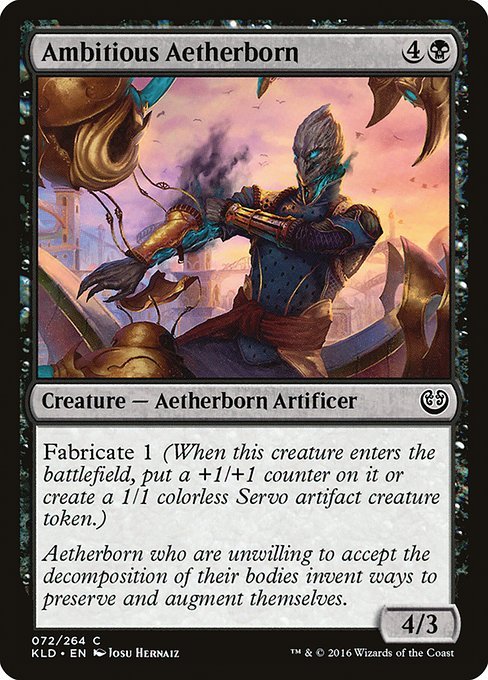
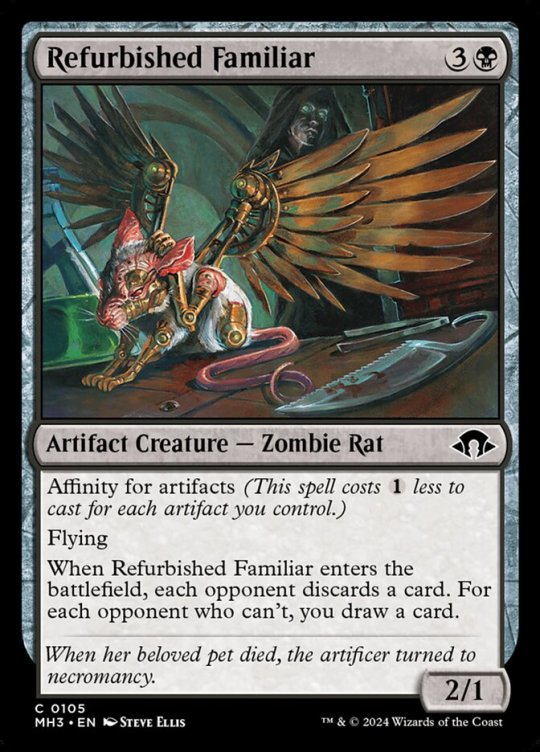
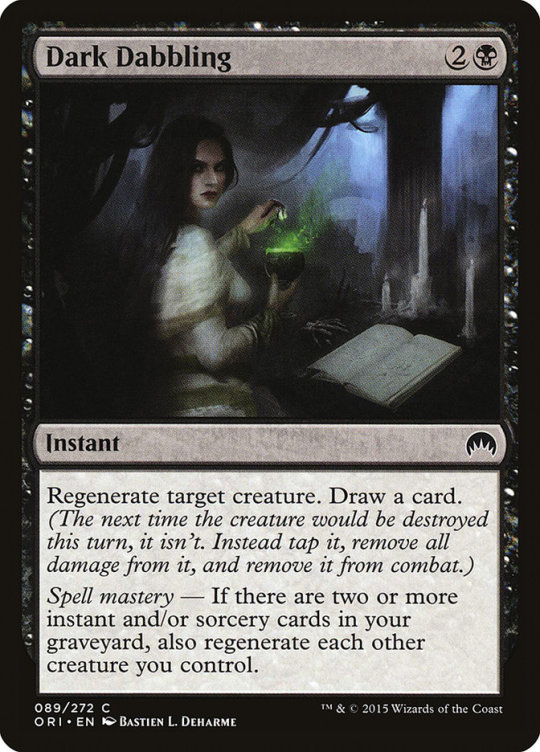
"Do not go gentle into that good night. Rage, rage against the dying of the light." -Dylan Thomas
An aetherborn, railing against the shortness of their natural lifespan, constructs a new body for themself with their own bare hands. An artificer's grief over her lost companion causes her to push invention to its limits. A young girl who loves her brother calls on the darkest of powers to save him. As it turns out, necromancy–that original thematic keystone of black–is only one of black's many, many refusals to let go of love and hope once it has them, even in the face of the ultimate end.
Time and time again, black–in love with life, ablaze with hope–looks the Grim Reaper in the eye and tells it: "Not today."
#mtg#magic the gathering#color pie#black mana#liliana vess#vorthos#literary analysis#war of the spark#magic origins#planeswalker#nicol bolas#vraska#necromancy
742 notes
·
View notes
Text

hope no one else has done this yet
484 notes
·
View notes
Text
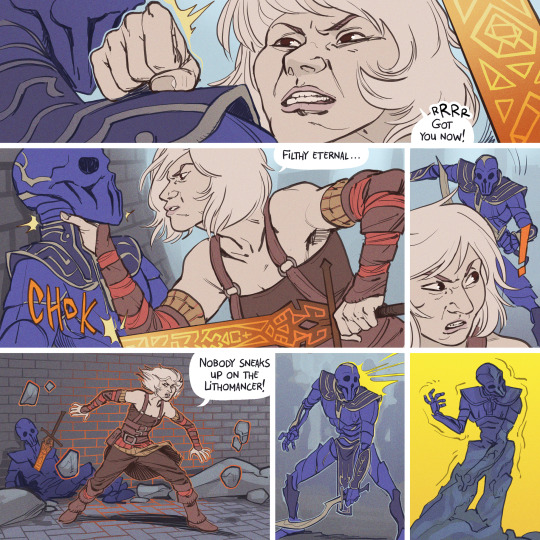
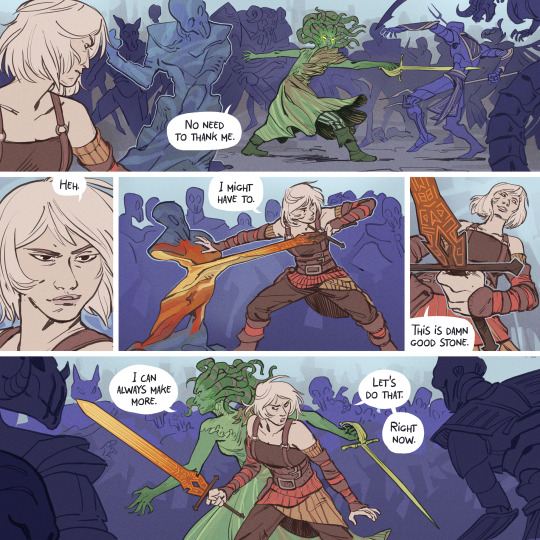
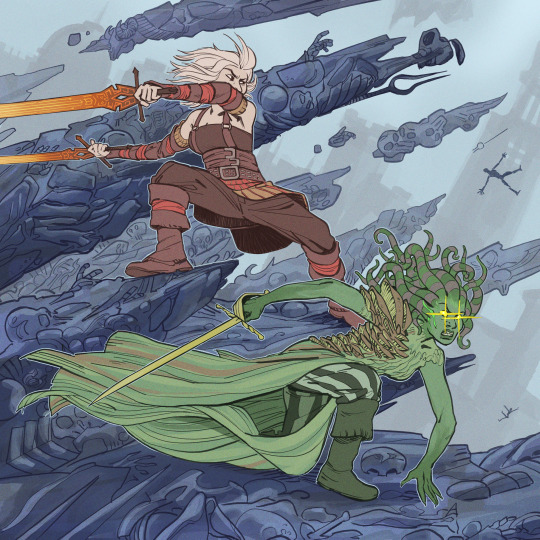
The Lithomancer and the Gorgon ⚔
Nahiri meets Vraska during the War of the Spark! They figure out some sweet combo moves~ Based on an idea by @jacebeleren
Bonus: Sorin and Jace react ;)
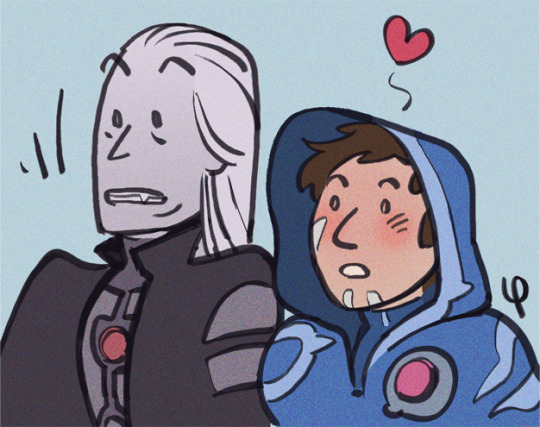
2K notes
·
View notes
Text
Sorry I have a fever
I love them
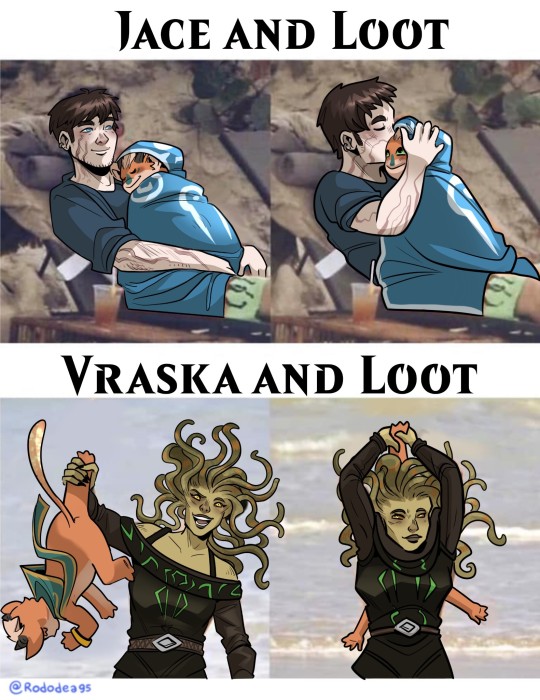
834 notes
·
View notes
Text
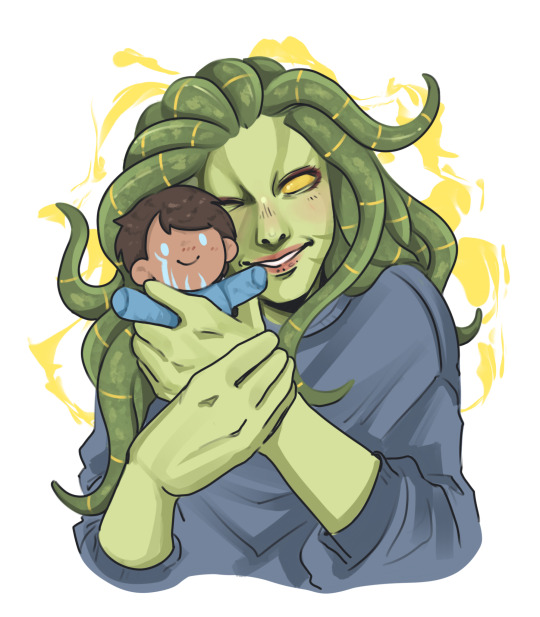
432 notes
·
View notes
Text
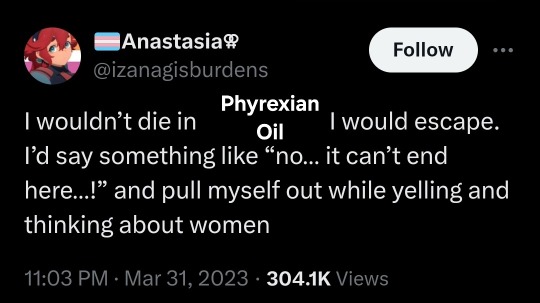
Jace Beleren be like
812 notes
·
View notes
Text

780 notes
·
View notes
Text
Only one day left!!! Get to the polls!!!
Alesha, Khan of the Mardu vs. Vrsaka, Queen of the Golgari
Magic: The Girlbossing FINAL ROUND


#alesha#alesha mtg#vraska#vraska mtg#magic the gathering#magic the girlbossing#mtg#poll#pill bracket#girlboss
263 notes
·
View notes
Text
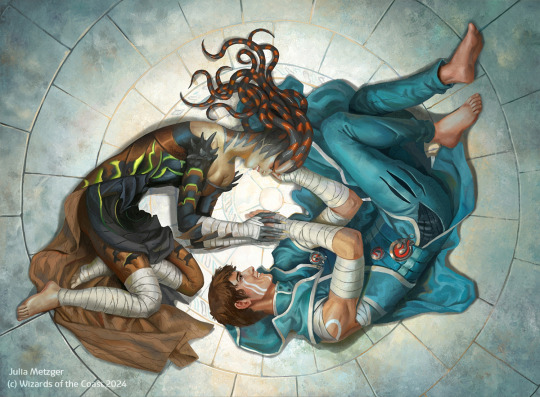
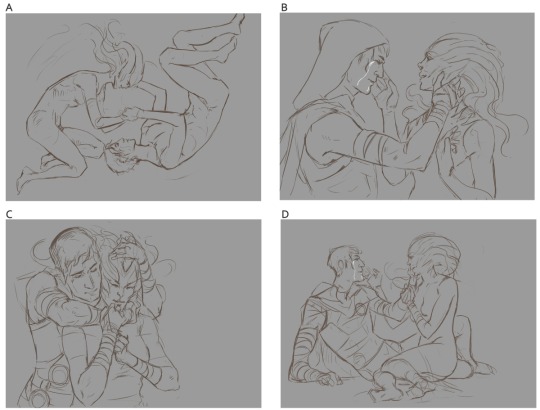
🌟Cathartic Operation🌟 AD: Taylor Ingvarsson Magic: The Gathering Outlaws of Thunder Junction Alchemy print available: https://www.inprnt.com/gallery/juliametzgerart/mtg-cathartic-operation/
546 notes
·
View notes

